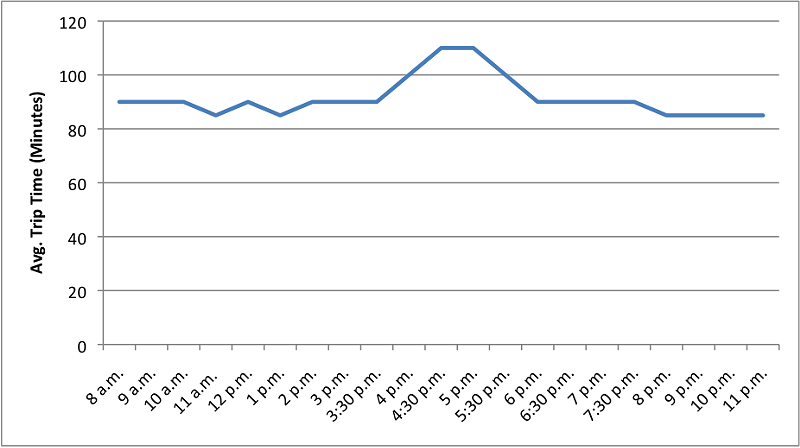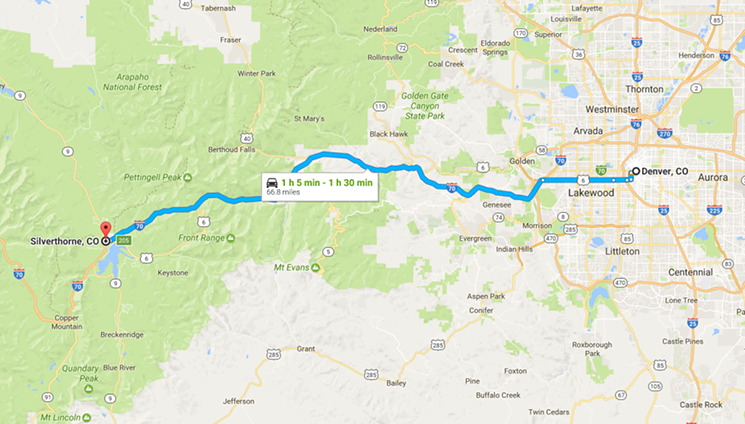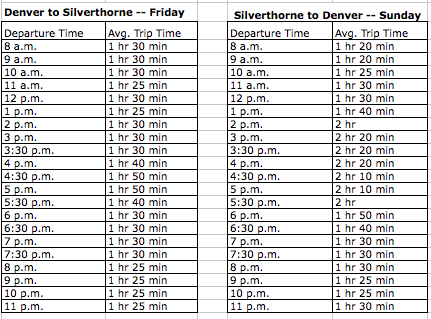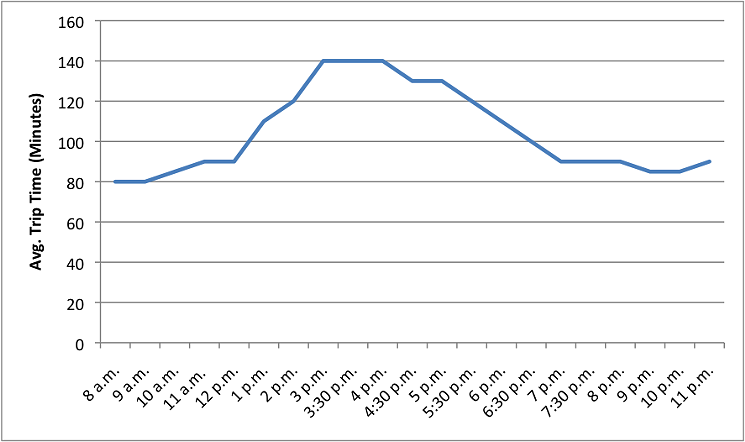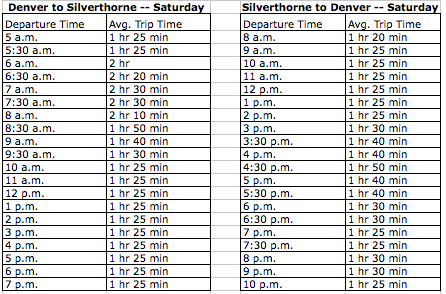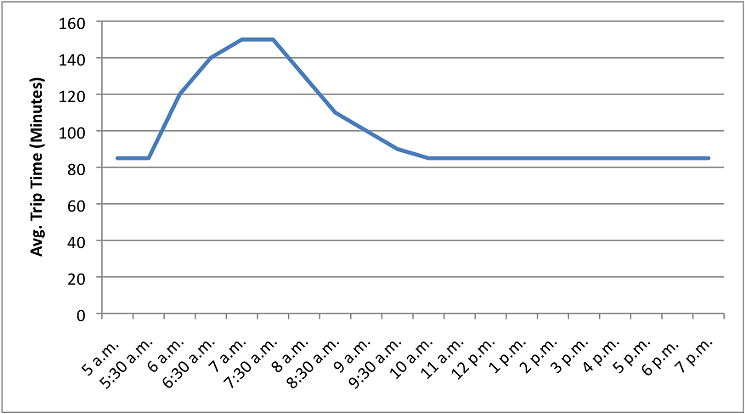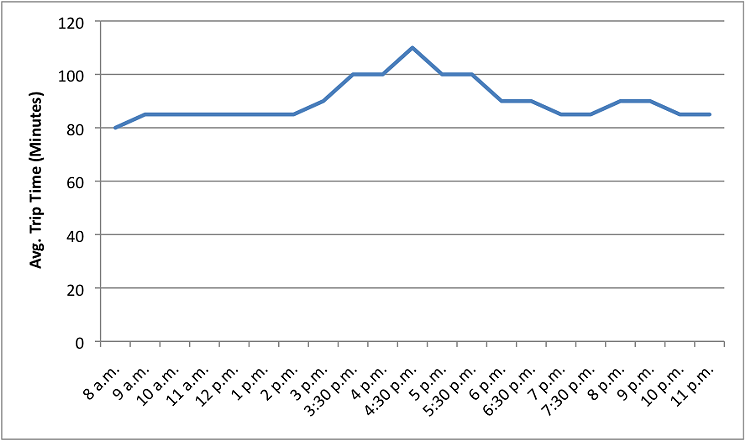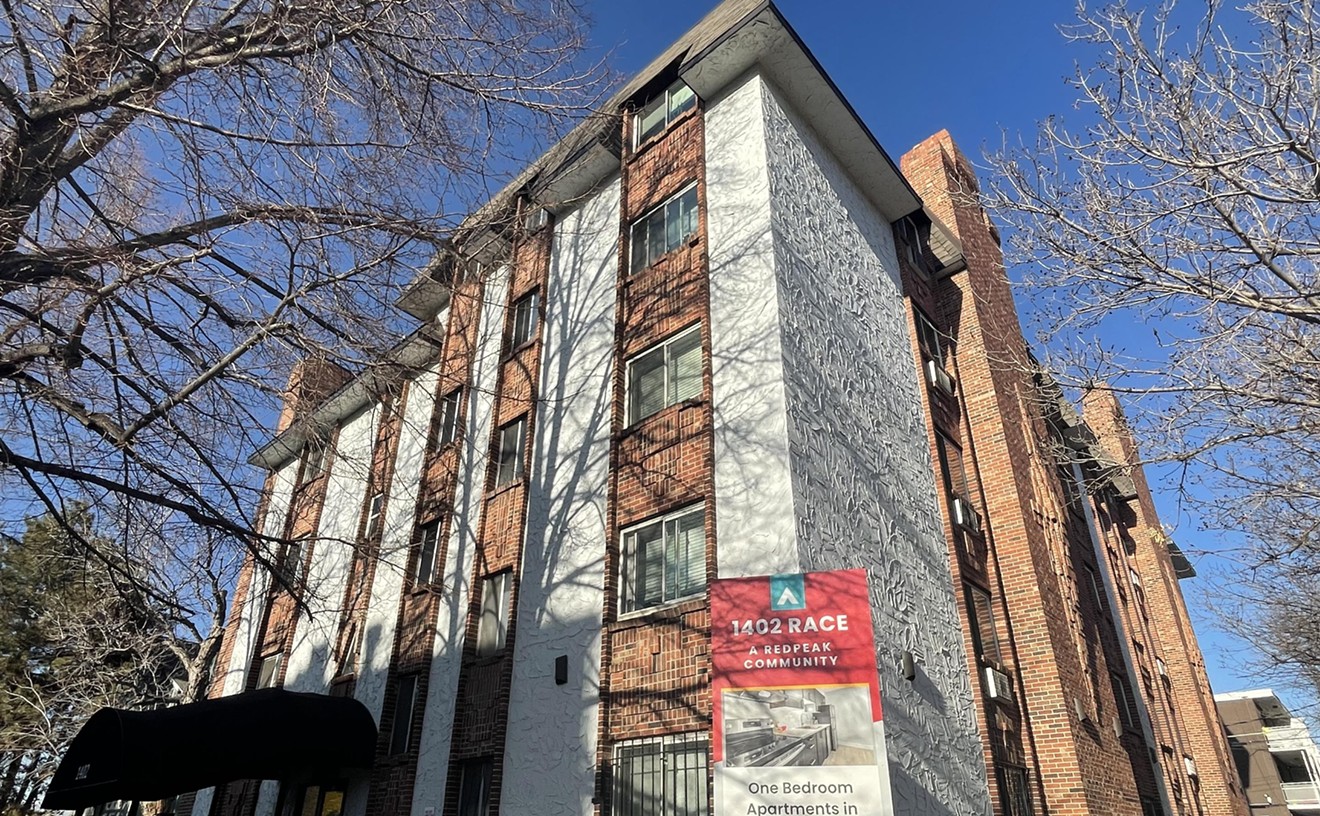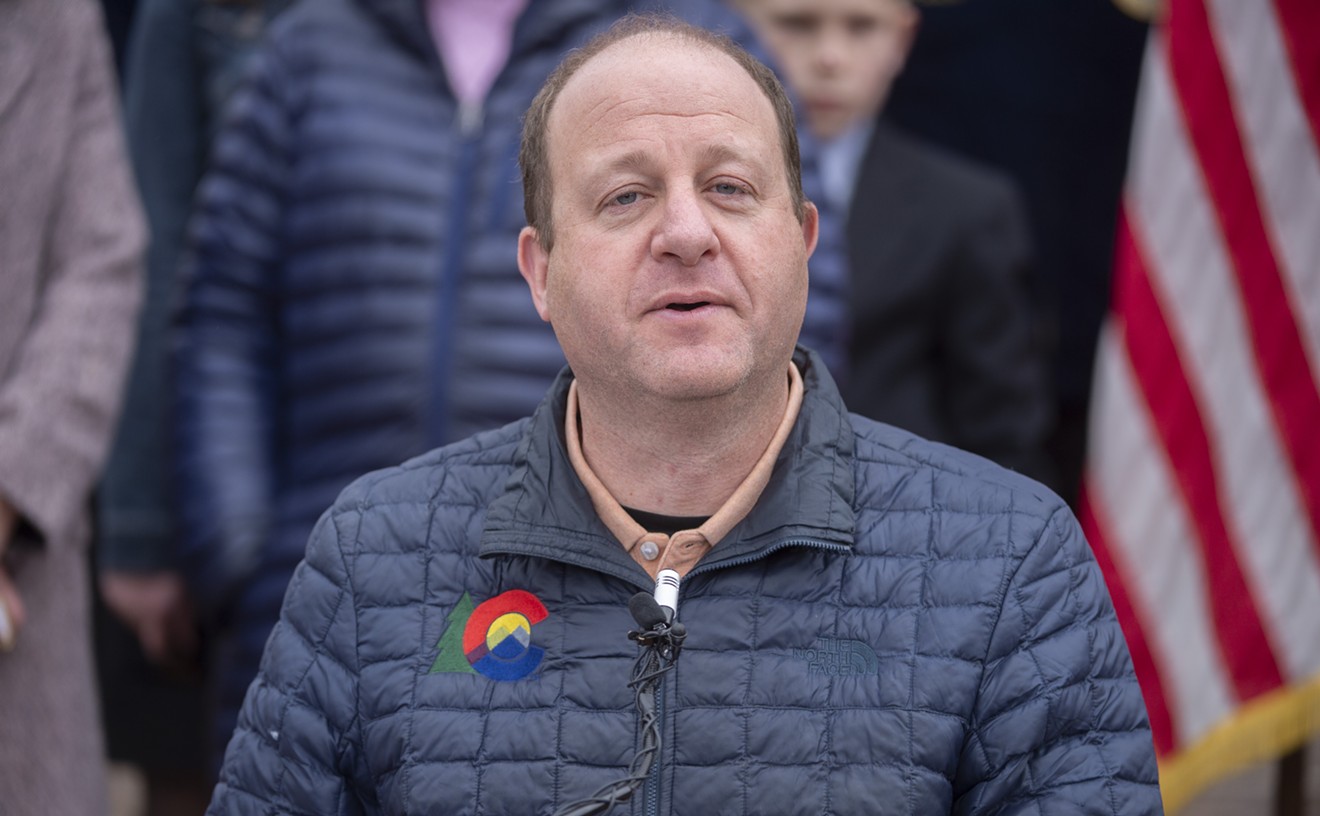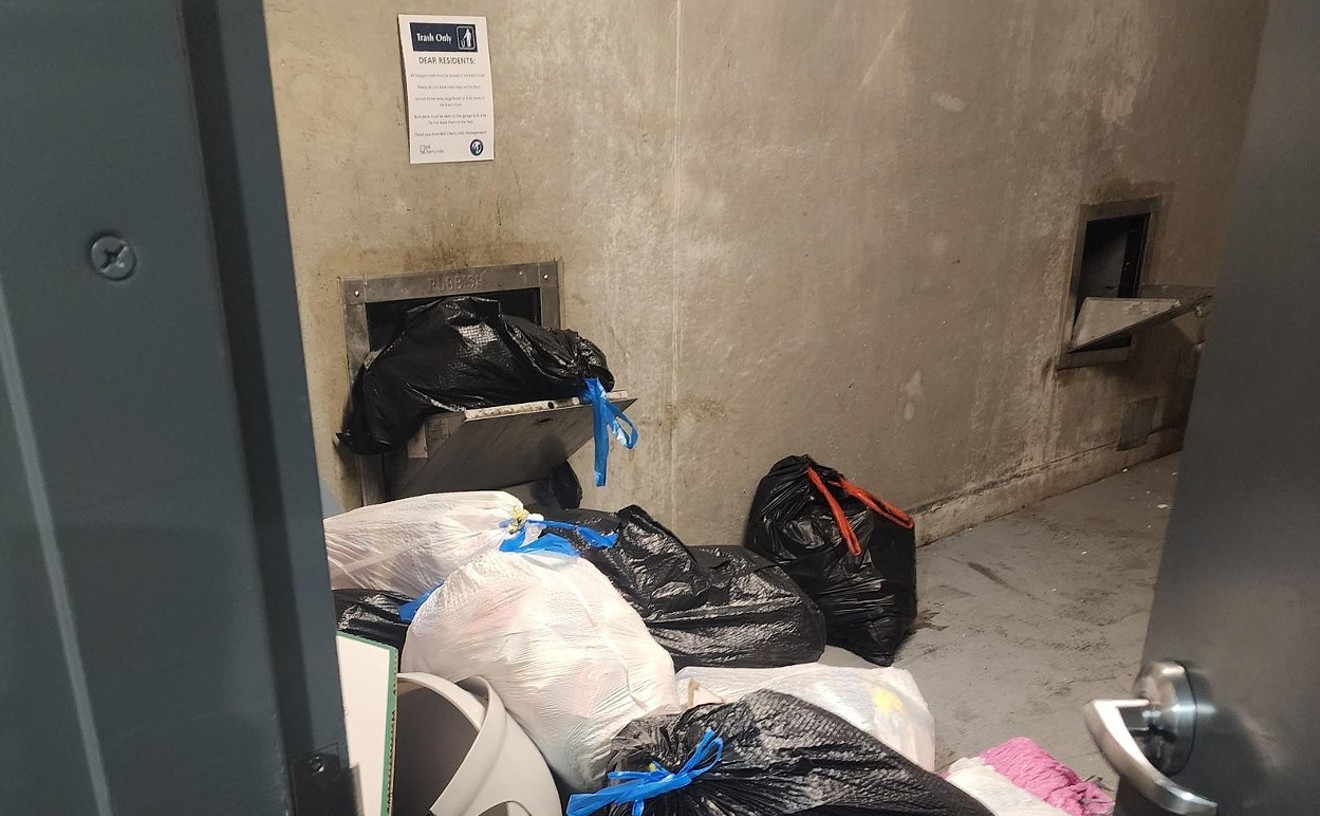Weekend traffic on Interstate 70 in the Rockies can be miserable, as anyone who’s taken a trip into the mountains on a Friday, Saturday or Sunday has probably experienced.
But what if you could avoid the traffic altogether?
Using data from Google, we looked at the busiest weekend times on I-70 throughout the year when traveling to and from Denver.
Since 2012, Google has compiled drive-time data by tracking users of its Google Maps app on mobile phones. Google also receives data from the app Waze, which it acquired in 2013. Now that accumulated data allows Google Maps to make fairly accurate “arrive time” predictions when users ask for directions, even for specific dates and times of departure in the future. (This is, of course, barring any unpredictable events, such as accidents or road construction, that will throw off estimates.)
Using this function of Google Maps, we examined the drive times between Denver and Silverthorne (on the west side of the Eisenhower Tunnel), which is the 65-mile stretch of I-70 that seems to get the most congested on weekends.
We specifically looked at the Friday commute times going into the mountains (from Denver to Silverthorne) as well as the Sunday commute times returning from the mountains to Denver. We then compared the times among weekends at different points of the year (around the winter solstice, spring equinox, summer solstice and fall solstice).
There did not appear to be a significant difference between weekend drive times during different seasons of the year — only slightly higher commute times when driving on I-70 to Denver on Sundays during the ski season.
Below are tables and accompanying charts showing the typical commute times when leaving Denver on a Friday and returning on a Sunday.
Denver to Silverthorne on a Friday:
Silverthorne to Denver on a Sunday:
According to the data, the worst time to leave Denver when taking I-70 into the mountains on a Friday is between 4 and 5:30 p.m, with a peak drive time of 1 hour and 50 minutes as opposed to 1 hour and 25 minutes without traffic.
The worst time to leave Silverthorne when driving back to Denver on a Sunday is between 2 and 6 p.m., with a peak drive time of 2 hours and 30 minutes as opposed to 1 hour and 15 minutes without traffic.
Expect these times to be exaggerated on holiday weekends.
There are also unique traffic patterns during the ski season, when many Denverites take the I-70 corridor to hit the slopes. We compared traffic during three different weekends of the ski season (December, February and early April) and found that the results were more or less consistent. For return trips from Silverthorne on Sundays, the data is also nearly the same as that shown above. But the patterns of traffic on Saturdays do change during the ski season because of people making day trips to the slopes.
Below are tables and accompanying charts showing the typical commute times on Saturdays during the ski season (November through mid-April):
Denver to Silverthorne on a Saturday during the ski season:
Silverthorne to Denver on a Saturday during the ski season:
As the charts show, the time of departure from Denver on a Saturday morning has a profound impact on drive time; the difference between leaving at 5:30 and leaving at 6:30 a.m. is nearly 55 minutes of driving. The worst time to leave Denver is between 7 and 7:30 a.m., when the commute to Silverthorne takes nearly two and a half hours as opposed to 1 hour and 25 minutes without traffic.
On the return to Denver, traffic spikes just as the ski slopes are closing — between 3 and 4 p.m. On average, the commute takes an extra 45 minutes for people leaving Silverthorne when the slopes close. Traffic is best for those who leave earlier (before 2 p.m.) or later (after 6 p.m.).
To avoid ski traffic on Saturdays and Sundays, it's best to leave Denver before 6:30 a.m. and head back from the slopes before 2 or after 6 p.m.
[
{
"name": "Air - MediumRectangle - Inline Content - Mobile Display Size",
"component": "12017618",
"insertPoint": "2",
"requiredCountToDisplay": "2"
},{
"name": "Editor Picks",
"component": "17242653",
"insertPoint": "4",
"requiredCountToDisplay": "1"
},{
"name": "Inline Links",
"component": "18838239",
"insertPoint": "8th",
"startingPoint": 8,
"requiredCountToDisplay": "7",
"maxInsertions": 25
},{
"name": "Air - MediumRectangle - Combo - Inline Content",
"component": "17261320",
"insertPoint": "8th",
"startingPoint": 8,
"requiredCountToDisplay": "7",
"maxInsertions": 25
},{
"name": "Inline Links",
"component": "18838239",
"insertPoint": "8th",
"startingPoint": 12,
"requiredCountToDisplay": "11",
"maxInsertions": 25
},{
"name": "Air - Leaderboard Tower - Combo - Inline Content",
"component": "17261321",
"insertPoint": "8th",
"startingPoint": 12,
"requiredCountToDisplay": "11",
"maxInsertions": 25
}
]

